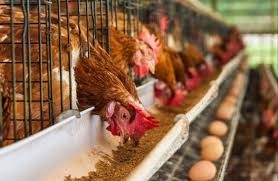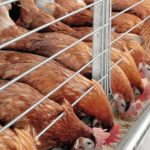Lagos poultry farmers say residents may experience a slight decline in the cost of eggs and chicken in the coming weeks as the state government rolls out the second phase of its feed subsidy initiative designed to cushion food inflation ahead of the festive season.
The program, launched under Ounje Eko Phase II by the Lagos Ministry of Agriculture and Food Systems, aims to stabilize production costs at a time when poultry demand typically surges, putting pressure on both farmers and consumers.
The subsidy provides discounted feed to participating farms and is expected to help keep staple foods within reach for households already stretched by rising prices. According to an official of the Poultry Association in Lagos, the intervention has sparked early conversations among producers about lowering retail prices in response to reduced input costs.
In his remarks, the official noted that the initiative is projected to push the price of a crate of eggs, currently sold between N5,500 and N6,000, down to approximately N5,100 to N5,300 once subsidised feed becomes widely available. He explained that while the state is supplying only one feed brand, which limits access for some producers, the association has urged those who benefit to pass part of the gains to consumers as a form of social responsibility. He added that a team of farmers is scheduled to meet government officials this week in Alausa to formalise the planned price adjustments and present early evidence of the scheme’s effect across the settlements. Beneficiary materials are expected to start arriving from midweek, with dozens of farmers already listed to receive support.
He also confirmed that the subsidy has triggered immediate reactions within the broader feed market, as competing manufacturers have begun lowering their own prices to remain competitive. This, he said, is a positive sign for small poultry businesses that have struggled with steep feed costs, as it could help them retain customers and stay active in a difficult operating environment.
Beyond eggs, the association expects a moderate reduction in the cost of chicken, which remains a key festive item for many households. Discussions on specific poultry pricing are still ongoing, but farmers believe the intervention could bring some relief to buyers during the Christmas rush. The official encouraged other state governments to adopt similar support systems, arguing that wider adoption would create a more uniform decline in poultry prices and ease pressure on both producers and consumers nationwide.
The update comes at a time when Nigeria faces its highest food inflation levels in decades, placing MSMEs under considerable strain and forcing families to rethink their holiday spending. If Lagos achieves its intended outlook, the subsidy programme could offer a small but welcome buffer for households and a lifeline for poultry businesses navigating rising operational costs.










